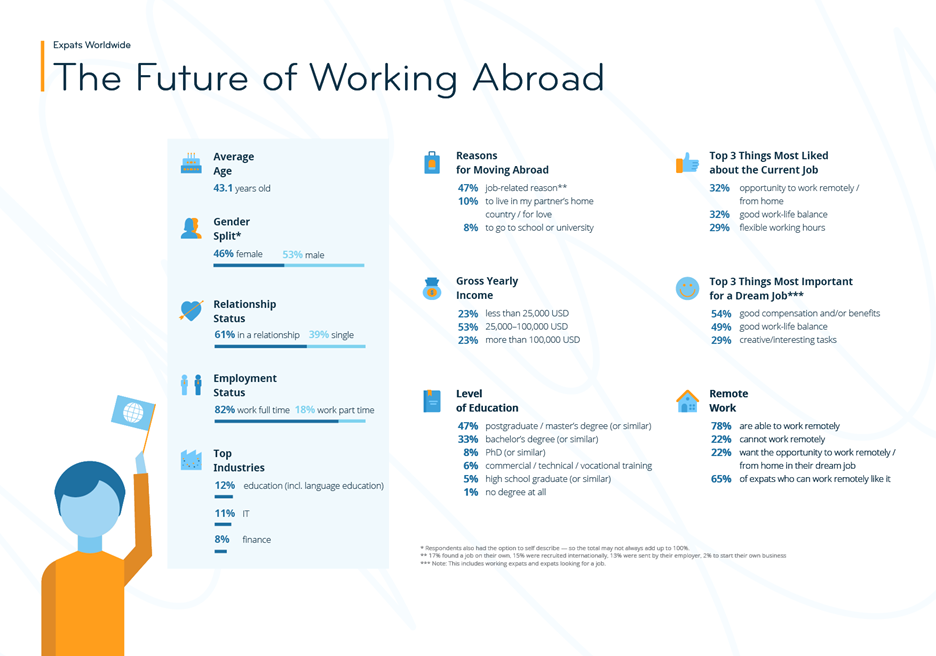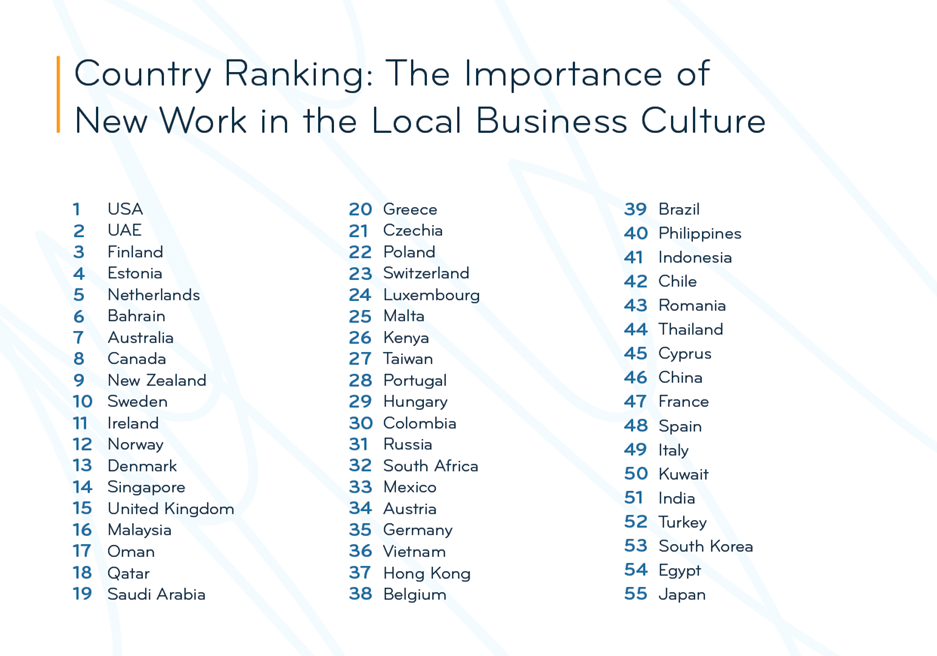Why did expats make the decision to move abroad? What fields do they work in, and what do they like best about their current jobs? How do they feel about remote work, and how do they envision their future working life?
Today, InterNations publishes its Future of Working Abroad report, which is based on its Expat Insider 2021 survey. The annual survey is one of the world’s most comprehensive surveys about living and working abroad, with more than 12,000 survey respondents in 2021.
Nearly half the expats working abroad (47%) relocated primarily for job-related reasons. This report offers in-depth information on how expats worldwide view their working life abroad and how they picture their future career. Additionally, the respondents share how important the concept of New Work is in the business culture of their host and home countries.
Working Expats around the World
Working expats around the world are well educated and most commonly work in the fields of education, IT, and finance. Remote work is an everyday occurrence for many of them: In fact, 78% are able to work remotely. The COVID-19 pandemic had an effect on the remote work policies as well: close to half the respondents (48%) are now able to work remotely more often than before, or remote work has even been newly introduced for them.
When asked what they like best about their current job, expats most frequently mention the opportunity to work remotely / from home, alongside a good work-life balance and flexible working hours. However, when imagining an ideal work environment, they envision a good compensation and/or good benefits, a good work-life balance, and creative/interesting tasks.
New Work in the Local Business Culture
Respondents were also asked to rate how important the concept of New Work, which describes the new way of working in the global and digital age, is in the local business culture. The countries that rank highest for this factor are the United States (1st), the UAE (2nd), and Finland (3rd). Expats in these destinations feel that the local work culture embraces new ways of working, which include, for example, more flexibility, a focus on work-life balance, and digitalization. At the other end of the ranking, New Work has the least importance in Japan (55th), Egypt (54th), and South Korea (53rd).


























